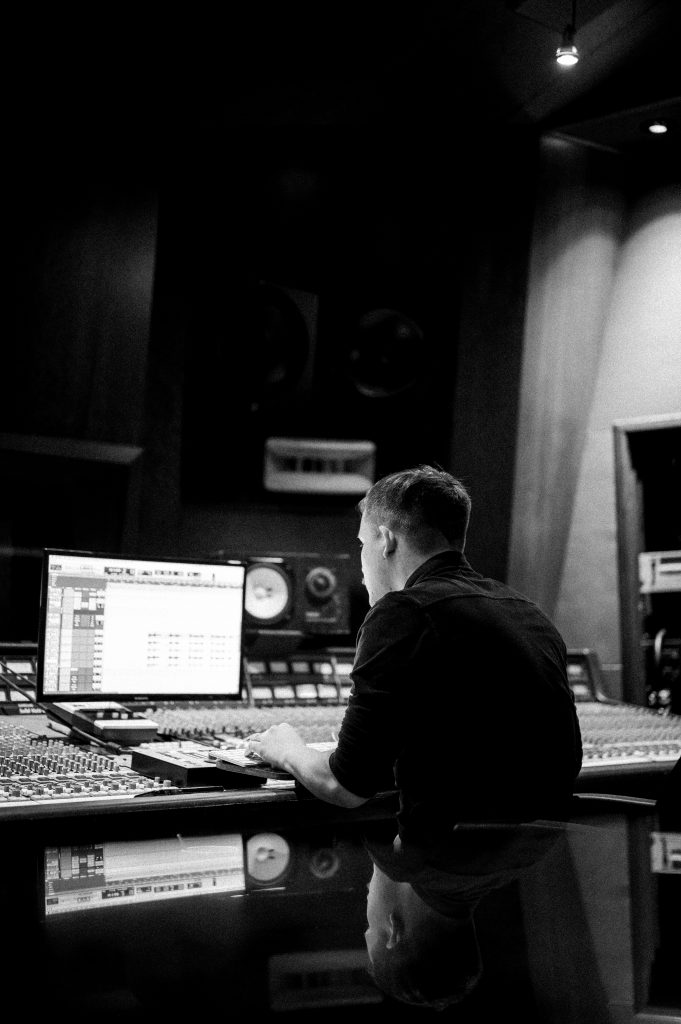As an independent artist and musician, you may have written and re-written just one song, or countless songs. Some were probably good, some might have been bad, and one or two might be the best song of all time. However, the real question is, are they protected?
You definitely don’t want your precious work over the course of your music career to be vulnerable to stolen lyrics, melodies, or titles. In the music industry or otherwise, there’s only one way to ensure your intellectual property — the songs, the lyrics, the melodies you’ve written – are safe.
Enter, copyright protection.
Table of Contents
What is a Copyright?
A copyright is the only true way to protect your songs. In the case that you need to sue someone who has stolen your work, your copyright makes sure that you have the grounds, license, and exclusive rights to do so.
When you copyright a song, having a properly registered copyright serves as definitive proof that the work is yours, and solidifies the timelines for when you created the musical composition (the song, recording, and so on).
When you copyright a song, this also keeps people from:
- making copies of your recordings or sheet music you create
- using any element of your song
- selling the music you create (without your permission)
- performing your songs
- playing recordings of your songs
- any other form of infringement of any component of what you create
Of course, you can always allow any party to do these things with your permission as you wish. Some artists love when other musicians cover their songs, while others do not. It’s all about what you’re comfortable with because at the end of the day, it is your music, and you want that to be protected at a federal level, from the start (not later down the road when there’s a problem, and you wish you had done it sooner).

How Does a Copyright Protect My Work?
When you register to copyright a song, this means if any person, songwriter, or group, anywhere writes a song similar to yours or even music that resembles it, you have the right to send a cease and desist. Your copyright, once registered, will reside in the Library of Congress where it’s easy to see all the details about your song right away, and gives you the exclusive rights to what you created (again, at a federal level). This means you can prove without a doubt when you thought of the song, and that that song is definitely your original, exclusive work whether you’re an artist, producer, songwriter, etc.
By keeping a record of when a song was created and registered, copyrights work ensure you have undeniable proof the song is original to you, protecting you from any form of infringement.
This way if your bridge suddenly shows up in that new bop on the radio or online, you can actually do something about it. In short, registering a copyright can prove your ownership, and that work you put into creating the song, the lyrics, and/or the music behind it is most certainly yours for a relatively low amount of one-time fees to cover yourself.

Why is Registering a Copyright with the U.S. Copyright Office Important?
Everyone has heard of the scandals over song ownership and music copyrights. Some of these scandals over recordings are more famous than others, such as Vanilla Ice Vs. Queen and David Bowie, or more recently Katy Perry Vs. Flame.
Basically, if someone — a person, a band, a producer, a songwriter, and so on — steals musical works from you, they should pay for it, because you are the rightful owner, not them.
If someone steals your music from you, copyright law can demand that they stop using the material and could even mean that they have to pay you money for using your work without permission.
In the Katy Perry Vs. Flame copyright infringement dispute, originally Katy was ordered to pay Flame $2.8 million dollars in damages. This decision was later repealed, but it goes to show the importance of registering a copyright for your music, for both parties.
And these copyright infringement battles are seemingly never-ending, as a recently announced lawsuit, filed in California federal court in Q2 of 2021, now looms over Halsey and Khalid’s Benny Blanco-produced “Eastside”.

Avoid Scams
When you’re ready to register your copyright and begin searching online, keep this in mind: If a website offers copyright and it’s not the U.S. federal government, steer clear! It’s fake and they’re definitely trying to scam you.
Occasionally scammers come up with website addresses that look eerily similar to the real thing, but if it isn’t https://copyright.gov/ then you’ve got the wrong website. Back away slowly and don’t enter any information about your song or music (you could regret it)!
Another music copyright scam out there is “The poor man’s copyright”. Some people believe that if you need to register your song(s), you can mail yourself your own work (a recording of the song for example), skip the fees, and that is how your song becomes protected.
This comes from the idea that you can copyright a song via the date on the postage, and that this somehow automatically validates the conception of the song.
But, unfortunately it does not.
While that’s a great idea in theory, it does nothing in the legal system to protect your music or recording in a court of law, and certainly does not register your copyright in any way.
If you ever need to sue for damages (statutory damages, etc.), you won’t be able to use a postmarked-on box from an envelope you sent in the mail to prove anything (and no, you cannot prove this in court even if you use certified mail). You NEED to copyright your songs fully and properly with the U.S. Copyright Office (a part of the Library of Congress) in order to have a valid legal claim in a tangible form. You can try hiring an expensive attorney, but they will tell you the same thing, and it’ll be a tough (if not impossible) battle, rest assured.
But, now you know why so many artists have boxes of their music laying around, and why you may have heard stories about a free “poor man’s copyright” not holding any weight in a court of law from that artist or attorney friend of yours.

Copyrighting is Never Free
Real copyrights are never free. This is another way you can determine if someone is lying to you online on the internet, telling that you can register a copyright for your recording at their site for free. While this may be disappointing news, know that paying for protection of your precious assets — your songs — as a musician is well worth the price. As we covered before, you don’t want to get caught with just a postmark on your lyrics, song, or recording as your only evidence of your ownership.
When you copyright a song you’ve written, it costs a $35 fee for the registration of one song and a $55 fee to register a copyright for multiple works. The copyright office’s collection of these small amounts really just covers their paperwork and filing + verification tasks on their end regarding your claim to your composition. This is a small price to pay for a lifetime PLUS 70 years of protection.
As long as you are alive, your work is protected and for an additional 70 years after your death. That’s why you probably haven’t heard a recording of “Happy Birthday” in a film until recently.
If you want to ensure your copyright of your recording or song, or lyrics you’ve written, will be entrusted to a specific individual after your death you do have the ability to transfer the copyright via gift, hold it in a trust, or file joint ownership. If the songs you’ve written accrue royalties this will assure those royalties go to your significant other, parents, children, or close friends.
The Professionals are Here to Help Protect Your Sound Recording
If you are ready to register a copyright for a song but are feeling overwhelmed, that’s perfectly normal. It’s a lot of information to process, no doubt! If you are nervous about registering for copyright on your own, there are tons of professionals and law experts out there that offer these types of services and would be happy to help. And yes, you can do this without an expensive attorney (but if you’re able and want to hire an attorney to handle this for you, go for it).
(Of course, if you’re an independent artist, but do end up signing with a record label at some point, one of the benefits of that is that they most likely have an attorney they work with on an ongoing basis that will definitely handle this for you.)
How to Copyright a Song (or get some help doing it)
If you find yourself still struggling with how to copyright a song (even after reading this article), companies like LegalZoom also offer these services (once you setup an account with them), and they have the ability to register your songs for you without the risk of an improper registration.
The process itself isn’t terribly difficult, but if it’s your first time, it could be overwhelming your first few times through (we’ve been there!). The professionals (or an attorney) can walk you through the process and pitfalls so you know exactly what to look out for in the future. They can provide the services to get it done for you so that God forbid, you’re covered if you end up in court one day fighting with your attorney to protect the assets which rightfully belong to YOU.
Having a copyright of your song, lyrics, and/or sound recording gives you the full right and license to fight that battle fully.

Prepare Forms, Documents, and More
If you do choose to register for copyright on your own for your recording, song, lyrics and so on, there are few things you need to do to prepare. Before you begin registering make sure everything is in order to make your registration process as smooth as possible.
You should make sure you have the following ready for each song:
- Songwriter’s name
- Artist (if different from Songwriter’s name)
- Album name
- Song title
- Producer name
- Split Sheet
- MP3
- Lyrics
Making sure you have all of this information ready for each song or composition will save you time and much stress. Paper clips or file folders are also helpful for storing this information once you complete the process so you have a record of what you did, and when.

Register Online
Once you complete your organization of information, you’re ready to begin the process. While this part might seem boring, it’s actually the most exciting! Your songs are about to be stored in the Library of Congress through a proper, real deal registration. So let’s get official!
First, head over to https://copyright.gov/ and click “Register a Copyright”.
Create an Account
The next step is to create an account. Click “Login to Eco”. After that, click the phrase “If you are a new user click here” underneath the login to create an account.
Be prepared to provide the following information as you get ready to setup your account and registration for your song with the copyright office:
- Your full name
- Your current address
- Phone number
- Preferred contact information
You’re on the grid now! You should be able to log in on the website and proceed with your copyright registration.
Register New Claim
Now it’s time to use all the paperwork you’ve gathered. Make sure you have it all handy and ready to go as it will make this part of the process MUCH faster. With song copyright, organization is key.
- Now that you’re logged in, head back to the copyright homepage. Under “Copyright Registration” select “Register a New Claim” highlighted in blue.
- You’ll be directed to the registration process overview where you’ll be asked a series of questions with yes/no answered. Check the box as it applies to your song/songs. If you’re registering more than one song, make sure you check “no” on the box that says, “I am registering one work.”
- You may check yes on the “I am registering one work” box If you are registering a collaborative album. If this is the case, an album can be counted as “one work” as long as it’s registration of a collective work. The protection will cover the order in which the songs appear on the album. This is helpful in the case that an album has multiple artists. The person who registers the copyright is the sole “owner” of the album titles as they appear on the album, but not the songs themselves.
- Select “Type of Work” from the dropdown menu. From here you can choose “Sound Recordings” if you have an MP3 of your composition, otherwise register the sheet music or song lyrics under “Performing Arts.”
- Next, click “New.” This will prompt you to fill in all the information about your music such as publishing date, collaborators, etc. Take your time filling in this portion as this is what most of the legal protection your filing for will be based upon.
When you complete this step you are finished registering your new claim for your music, and will move on to payment and submission of your songs’ copyright registration.
Yes, there’s a little more to the copyright process, but you’re almost done!
Pay the Fee
Before you upload your MP3 files, you will first be asked to pay the fee to register your work. As mentioned before, the filing fee to record one work is $35 and $55 to record multiple works. There are multiple ways to submit payment, the easiest being a credit or debit card.
Upload Your Songs
Now, here comes the last step when you go to copyright a song: Uploading your music. You may upload as many songs as you like, but the file size limit is roughly 170MB to 500MB at 128kbps. Because of this limit, you may need to compress your files to make them fit these limits as you cannot (in most cases) upload your super high-fidelity, high-resolution versions for the purposes of the copyright office.
You can compress your files online using a converter, on your desktop, or even using an app on your phone. Just remember to keep the larger files of your songs, as compressing it will reduce the sound quality slightly. For more tools you can use to compress your MP3s of your sound recording(s) before you upload, check out this website.
Once you have uploaded all of your songs click “Upload Complete” and that’s it! You have now completed registering your songs with the copyright office, and assuming they don’t find any issues with your filings, you have a license to protect your work.
The U.S. Copyright Office will begin reviewing your application within the next few months after the date of your original submission (they get a lot of registrations on any given day, and the registration doesn’t happen automatically).
Your copyright representing your exclusive rights as THE owner is recorded and will become active as soon as the copyright office accepts your payment, application, and related files.
How Do I Know My Copyright was Received?
According to the U.S. Copyright Office website, you will receive an email confirming each step of the copyright application process from the copyright office. While they do not send confirmation receipts, you will know when you have completed the entire process of copyright registration, thus confirming it has been received.
As far as when you will receive your certificate of copyright from the copyright office, you can check the current processing times here. Times may vary due to unforeseen circumstances or an overabundance of applications.

Congratulations, You (and Your Music) are Protected!
So there you have it! Now you have all the information on how to copyright a song (or better yet, all of your music for full copyright protection as you move forward in your music career). Hopefully, you’ll never need an attorney to help you defend your copyright over the course of your music career, but having one should provide a lot of peace of mind…you’ll be glad you did.
Now you can write and create to your heart’s content knowing that you have the power to protect your work via the U.S. Copyright Office (a part of the Library of Congress), with copyright law on your side.
While it can feel like a tedious process to get a copyright recorded properly, each time you submit a new application is easier than the next, especially now that you have a standing account with the U.S. Copyright Office.
Congratulations on your new copyrighted music, now that you know how to register a copyright! The Library of Congress is a great place for your music to live, both in an intangible and tangible form, after recording your musical works.
Now that you know just how to copyright a song, we hope you enjoy the peace of mind that owning your music and having full copyright protection around your sound recording brings. This way, you can focus on continuing to feed your creative genius because you, and your music, are now protected!
If you still have questions on how to copyright a song, lyrics, sound recording, etc, feel free to visit HUDLMusic.com and email our support team (see the link in the footer), and we’ll do our best to help you, or point you towards someone that can.
We look forward to seeing you (and your well-protected music!) in the HUDL Music community soon!

